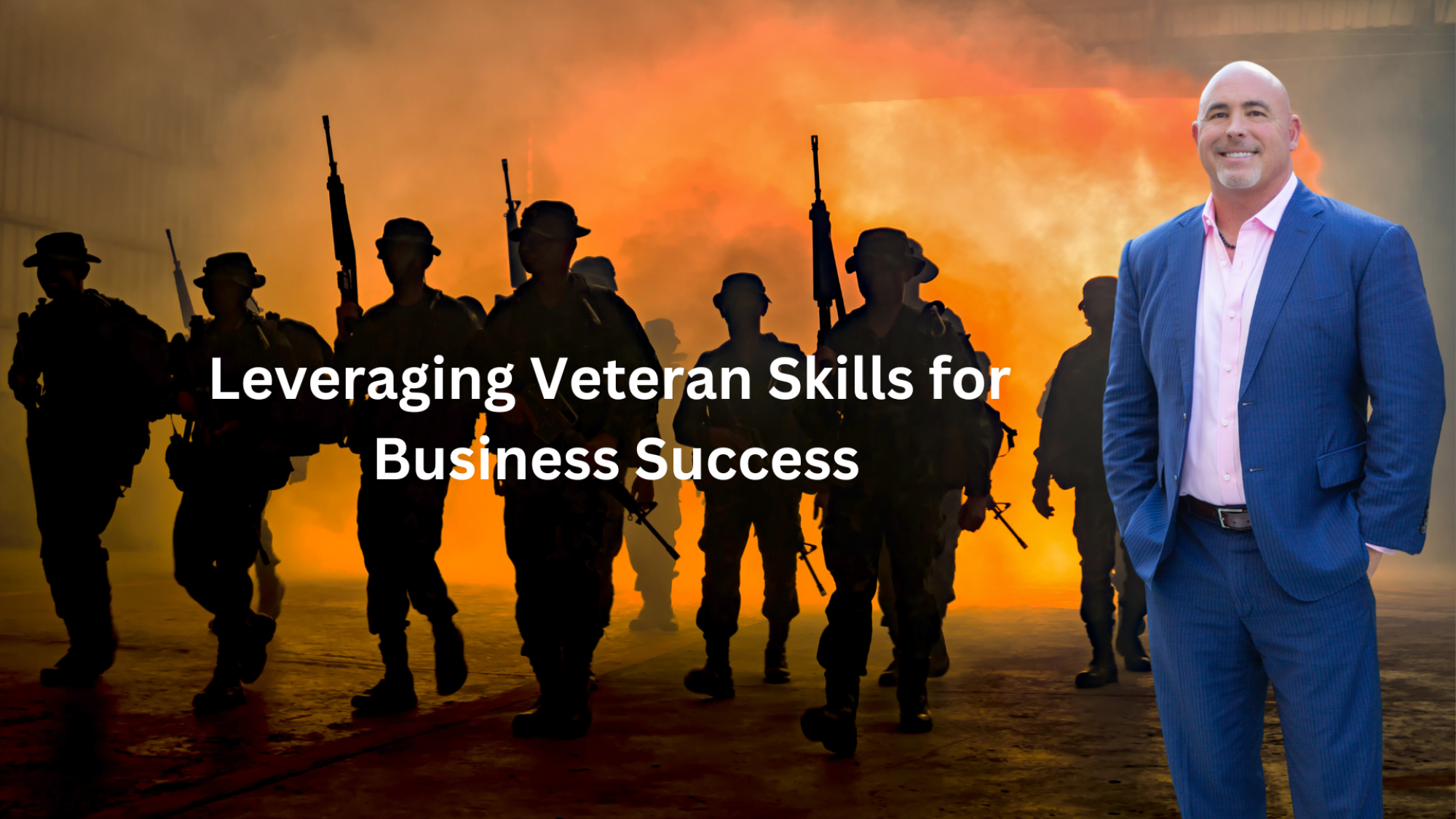
Leveraging Veteran Skills for Business Success
As a business architect, I’ve had the privilege of working with numerous entrepreneurs, but veteran business owners consistently stand out. What I observe in veteran entrepreneurs isn’t just a set of skills—it’s an entire operating system for success.
Before I start, I want to clarify that I am not a veteran. I have had the privilege to work alongside some amazing veterans on rescues but I did not personally serve. I have the deepest respect for this most honorable group of people and the skills and the abilities they bring to the business world make them just as formidable in the boardroom as they are on the battlefield.
Veterans bring something extraordinary to the business landscape: an ingrained understanding of systems thinking, mission-critical operations, and human dynamics that most civilian business owners spend years trying to develop. Their military service creates a unique professional brand that combines reliability, adaptability, and strategic thinking in ways I rarely see elsewhere in the business world.
On the other hand, after years in a structured military environment where objectives are clear, support systems are established, and chains of command are well-defined, many veterans feel like the prospect of starting a business is like stepping into uncharted territory without a map.
I’ve observed veterans grappling with concerns about translating their military experience into civilian business terms, wondering if their leadership style will resonate in a different context, and questioning whether they can navigate the seemingly chaotic world of market economics and customer relationships.
There’s often an underlying fear that the discipline and directness that served them well in the military might somehow be at odds with civilian business culture.
In honor of Veterans Day last week, I wanted to write a post directed at these brave warriors who have already given so much to our nation. As you consider your next mission in the civilian world, I want you to know that these same skills make you uniquely qualified to build and lead successful businesses. Your service hasn’t just prepared you for business ownership — it has given you advantages that many civilian business owners spend years trying to develop.
Mission Planning & Strategy
Just as military operations begin with clear objectives, your business plan needs specific, achievable goals:
- SMART Targets: Apply your military precision to setting Specific, Measurable, Achievable, Relevant, and Time-bound business objectives
- Risk Assessment: Use your tactical planning experience to identify and mitigate business risks
- Resource Allocation: Draw on your experience managing military resources to plan your business resources effectively
Securing Funding
Another obstacle for veterans looking for their second act in business is funding. Just like in the military, success often depends on knowing what resources are available and how to deploy them effectively. You’ve led missions with million-dollar equipment and managed complex operational budgets – now it’s time to apply that same resource management expertise to funding your business venture.
Make full use of your Veteran Business Outreach Center. They’re not just there for guidance, they’re your forward operating base for connecting with the entire spectrum of veteran-focused funding. Whether you’re pursuing SBA loans, government contracts, or corporate grant programs, lean into your veteran status and the proven track record it represents.
Don’t wait to engage with the growing network of veteran-focused investors and funding programs. Connect with other veteran entrepreneurs who’ve already made this transition. They can point you toward opportunities you might have overlooked and help you avoid common pitfalls. The funding landscape is competitive, but you’ve got access to resources that others don’t.
As you embark on this new mission, keep in mind:
- Your military experience isn’t just relevant – it’s a competitive advantage
- The skills that made you successful in service will make you successful in business
- The business community needs your leadership, integrity, and mission-focused approach
- You have access to unique resources and networks – use them
- Your greatest assets are your adaptability and determination
In the military, you never went into battle alone. The same is true in business. Your veteran community stands ready to support you. Seek out mentors and business advisors to help you make the transition.
The mission is clear. The objectives are set. You have the training, the resources, and the capability.
It’s time to deploy.